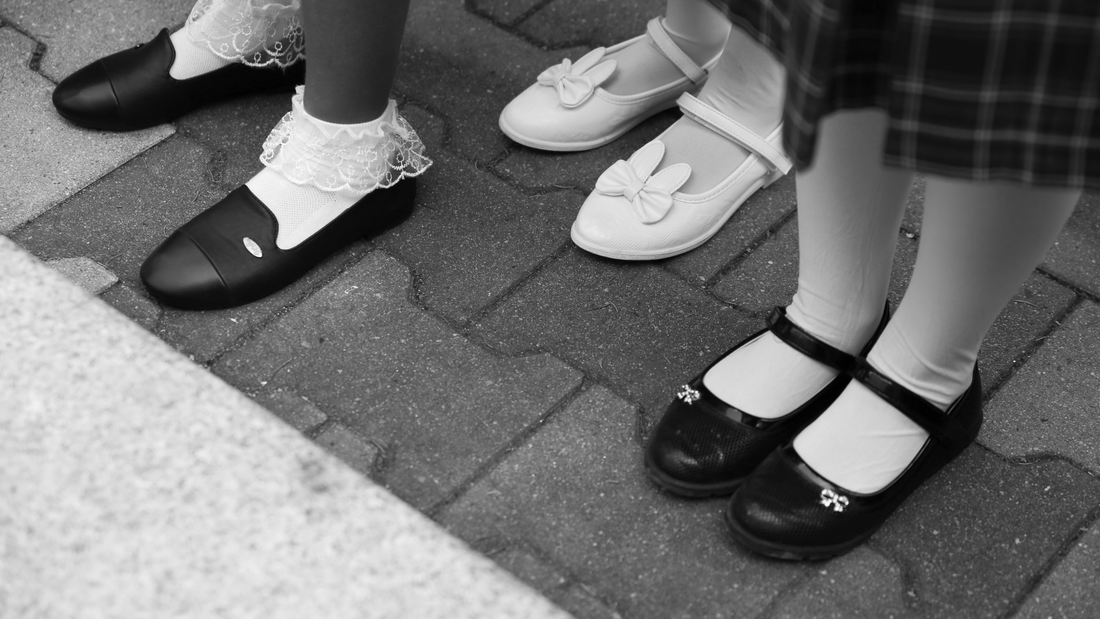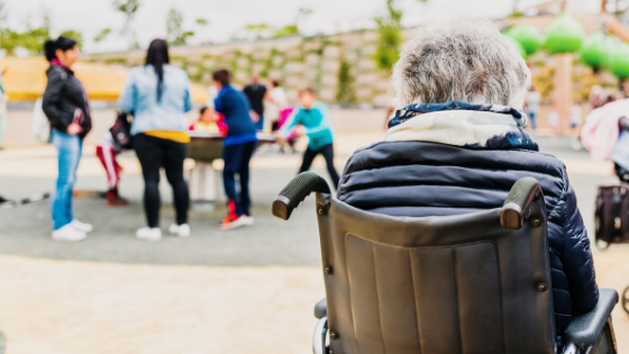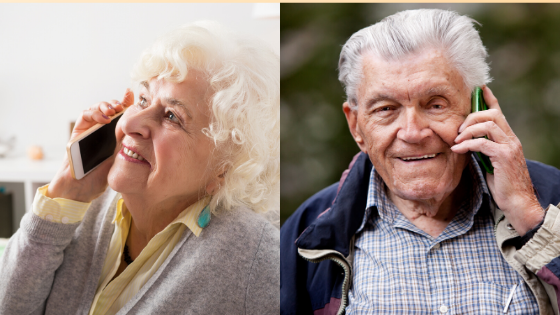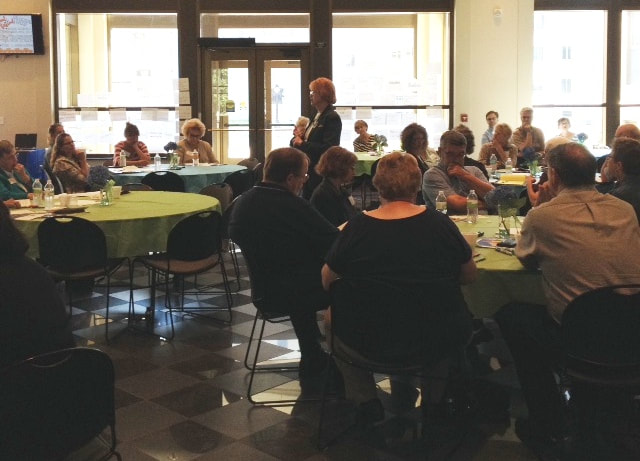|
IMy perspective on Covid is drawn from an early childhood experience with Polio. I believe it holds the key to unwinding the political binding that is strangling our vaccination effort.
It was summer, school was out and my sister and I could hardly wait to play with our friends. I already knew there was a sickness that children got and it made them so they couldn’t run and play. That seemed like the end of the world to me! Every day the radio reported the latest number of children with Polio and the number of deaths. After a week or so, my mother announced that we were “going to stay home and make things”. That seemed odd. We made all kinds of things; I learned to sew that summer. When I asked if Olivia could join us, Mom refused. Mom told us that Olivia was away on vacation. Later, I saw her mother driving their car. Olivia must be home again. Still Mom refused to allow her to come. She also refused any other children to come. Mom seemed worried all the time; I didn’t understand why. I thought I had done something SO horrible that she wouldn’t talk about it! Finally, I asked to go see Olivia at her house; Mom got really, really upset. I couldn’t make any sense of her reaction; what had I done? Did I do something to Olivia? My curiosity got the better of me. While my mother was putting my sister down for her nap, I left the house anyway! When I knocked on Olivia’s door, her mother answered. She seemed startled to see me. I asked to see Olivia but her mother replied; “is it OK with your mother?” “Yes”, I lied. She left me standing on the front stoop while she went into the dining room. Olivia didn’t come to the door. Instead, I heard a sound: whoosh, whiish, whoosh, whiish. It sounded like a giant breathing. Eventually, Olivia’s mother came to the door and invited me into their dining room. All the dining furniture was gone. In its place was a giant machine that wrapped itself around Olivia like a tin can: only her head showed. Olivia turned her head (sort of) and greeted me. I couldn’t speak. She tried to explain that she had gotten Polio. I still couldn’t make a sound. I don’t remember exactly what I did next. Eventually, I found myself sitting on the curb about midway between her house and ours. I have no idea how long I sat there. Eventually Mom must have come looking for me. She bent down and looked intently into my eyes. I still couldn’t talk. Her facial expression was the same as the time my sister had been bitten by a dog. Mom gathered me up and took me home. She looked me over physically. Seeing no injuries, she gave me a pill and put me to bed. That whole experience was buried deep in my mind; until Covid. During the first lockdown, I was awakened by the sound: Whoosh, whiish, whoosh, whiish. I got up and checked the furnace, no noise like that. It happened for several nights; I checked the windows and the plastic sheeting over the glass which sealed out air leaks. I found no “cause”. Finally, Olivia greeted me one night and I realized where I had heard that noise! My encounter with Polio had come back to me! Shortly after that summer, the radio announced the “Salt” vaccine. Mom corrected me, it was the Salk vaccine. The school gymnasium filled with children and their mothers. We were lined up, given the shot, and a card. I didn’t like shots. Mom looked elated! She took us out for a chocolate soda to celebrate. Celebrating seemed an odd way to respond to a shot. Olivia’s family moved away. The next year we moved. Only later did I learn that the shot I received was to prevent me from getting that sickness so children couldn’t run and play. Based on this experience, I suggest the following methods to refocus on Covid as a disease PERIOD. Polio and the concept of prevention through vaccine remained PRESENT to me because of that (buried) experience. Covid isn’t real for some people because it’s not present. Bubonic Plague left bodies in the streets. The 1918 Flu pandemic left people dying at everywhere. Nurses and doctors saw Covid effects. Those who tried to care for loved ones at home saw Covid up front. Covid isn’t visible to the general public when most patients are whisked away by ambulance, and sequestered in ICUs. WE NEED TO MAKE IT VISIBLE. Children who suffered from Polio came home in wheel chairs, crutches and iron lungs. They represented the effects of a dread disease. Long haul Covid sufferers don’t have appliances. They have memory loss and trouble breathing. That’s harder to see. We NEED TO MAKE VISIBLE THE EFFECTS OF COVID IN THOSE WHO HAVE RECOVERED. When I was born, there was only the Small pox vaccine. I remember grownups with a scarred circle on their upper (usually left) arm; their vaccine site. Bringing up a child was no walk in the park; whooping cough, measles, mumps, chickenpox, diphtheria and polio were only some of the hazards of childhood. Generations of parents spent sleepless nights in prayer beside children’s beds. They rejoiced at each vaccine because they had witnessed the alternative. Each vaccine removed the presence of an illness but it also broke the connection with lived experience. WE NEED TO REBUILD THAT BRIDGE. We need to reconnect to dots for those whose lived experience can’t teach them about such consequences. Covid -first wave was real. Covid Variant is also real WE NEED TO MAKE IT IMPORTANT ENOUGH. Who is important enough to make a difference in our response? When HIV-AIDs developed it only affected gay men. It was first called gay cancer. Some believed it was the judgment of G-d and should be left alone. Then HIV jumped to heterosexual people; it became important. We now have treatments. At first, Covid only took the lives of elderly people in nursing homes. The deaths of younger people in the first variant wave made some realize that a-n-y-o-n-e could die from Covid. Do the right people have to suffer before we take this seriously? Now is it important enough? This will not be our last plague or pandemic. What changes we make in society’s communication methods now, will decide if we surmount the next two SARS Covid-19 variants. Technology may give us wonderful vaccines, but these will be useless if we leave them on the table due to misinformation. Thank you Olivia, your life and death were not in vain. You showed me consequences and I am grateful for your gift.
0 Comments
Senior health studies show that social isolation is as important health as flattening the Corona-19 virus infection curve in seniors.
OPINION: It’s Time to Flatten the Loneliness Curve for Older Americans, by Marc Freedman and John Gomperts, was published in Next Avenue, April 20, 2020. The article discusses the impact of social isolation on elder health. This factor was an issue before Covid-19. However, the quarantine has made their social isolation even worse. The article references other countries’ methods of recognizing and responding to social isolation and encouraging elder social engagement. It offers several possible methods to facilitate the development of programs in the USA as engines to promote a better quality of life for seniors and for society in general. Did you know that grants were made last year to develop a Social Isolation Task Force and create a public education program? These grants were offered to all the state agencies that operate under the mandate of The Older Americans Act. I was on one of those task forces in my state. The assumption was the public wasn’t aware of the magnitude of social isolation amongst elders. Another assumption was the public wasn’t aware of the effects of social isolation on senior health and cost of care. Covid-19 changed all that. We‘ve all had a crash course in the experience of social isolation: the Stay-at-Home orders. We’ve seen people reacting, sometimes threatening violence, in a push-back against such measures. Children have suffered socially, emotionally and in their education as a result of being isolated from friends and school. To combat Covid-19, social isolation was one of the few measures we could employ. While we intended to combat the virus with isolation, we didn’t intend to isolate elders before Covid-19. Our society’s systems just didn’t address elder social isolation. Our society did not face social isolation before because of three factors; our original population, our history, and our lack of a collective memory experience. Our population was largely imported, usually young adults and their children. Later, they might send for the elders in the old country, or not. A sea voyage could be quite stressful on an older person. Thus, young people settled here. Later, another generation of young people left for the next new frontier. Our history shows that elders were left behind; again, and again. As a result, our focus was a succession of new frontiers. The USA never developed a role or task for elders. Today, our old frontier is closed. It’s time to bring society into the new social frontier: one in which we recognize we are a multi-generational country. There are gifts from each generation. We need to develop a role, and a function that recognizes the value of elders: a living history, perspective and experience. We also lack a collective memory of the elder’s journey. We all remember things from our childhood; many of us may not “remember” things from our elder hood; unless we have made that journey ourselves. Society hadn’t experienced certain aspects of aging, like social isolation, until now. We should view stay-at-home orders as our chance to learn what life is like for seniors who are forced to stay-at-home. What puts elders in that position? Their health may not permit frequent trips outside the home. Other elders are trapped at home because they can no longer drive. Public transportation may be too infrequent, too strenuous, or non-existent. Some elders find that vision or hearing problems interfere with socializing. We have few forums in which all generations come together. Religious institutions fill some of that gap but they can’t cover all the bases. Our neighborhoods are often age-segregated. Schools group children into smaller age cohorts: this is not the era of the all-ages, one-room school house. We build age-segregated housing only for elders. How is anyone to learn about the elder journey if our opportunity for observation and interaction are taken away? Covid-19 has given us a gift in disguise; we all shared some of the elders’ social isolation predicament. We reacted vehemently to these restrictions on ourselves. Now we know what they feel. The recommendations made in this article should be implemented. Let’s learn from this. As the old song says; ”Someday, some d-a-a-y, we’ll be together. Yes we will, yes we will...” Has this happened to you? “I took groceries to my Mom. She wanted have coffee with me. I’ve tried to tell her I couldn’t, but she just doesn’t get it! I don’t know what to do”!
Caregiving is a demanding process and Covid-19 adds more demands. Caregivers still try to respond to their loved ones even under new circumstances. In the past, the caregiver could might take the elder shopping; not now. Shopping was an outing, a chance to socialize, and a chance for the caregiver to assess how the elder was doing. Now, we wear masks and are encouraged to shop as quickly: a-l-o-n-e. We only have a fleeting glance at our loved one on food drop-off. We can’t just pop in the house or care facility to check on things for ourselves. We must rely on reports from our loved one, the staff or (sometimes) the news. Imagine reading the news and learning your parent’s facility has a Covid-19 outbreak! Caregivers revealed they felt guilty before, it’s especially true now. Some guilt seems to be rooted in the feeling, “I can’t do anything!” Yes, you can. Caregivers used to worry about elders taking medicine properly or eating regularly; now worries include possible exposure, illness & death. To add to these concerns, seniors seem to want more from the caregivers. They ask caregivers to run more errands or ask for things not appropriate to their diet or welfare. An elder asked me to try to take money out of an ATM with his bank card! Why are elders making more or different or even illegal requests? There are a couple reasons. First, caregivers make the distinction between the Covid-19 as the cause and the changes in our lives as the response. Sometimes, that distinction is not as clear to the elder. “They just don’t get it”; is a sign to caregivers that the senior hasn’t understood in the first place. Everybody has studied something that felt very different when actually experiencing it. Think of your first time behind the wheel of a car. No instruction manual prepared you for that feeling of your foot on the accelerator. Childbirth classes help, but they can’t communicate what it feels like to give birth to a child. After the experience, we “got it”. Making it real,related to the senior’s early experiences, helps them to “get it”. Second, caregivers understand the impact of this pandemic process. So, instead of doing more errands, we need to take the time to help seniors grasp the process. We feel guilty because we can’t take them out, or can’t give them a hug. So, when they ask for more and more, we do it because it makes us feel better. Have you noticed that more errands just aren’t enough? That’s because errands don’t fill the senior’s real need: finding meaning and support. A conversation, in which you focus on their early experiences, such as quarantine, helps them feel the reality of current circumstances. Explanations don’t work as well as a trip down memory lane. Just making the effort to help them understand the experience will fill their need for direction and support from you. Your senior relies on you in ways they can’t express. When they feel like the world has gone crazy, they look to you. When you show effort to help them understand (not expertise) they become calmer and you’ll feel better too. Third, just saying NO, puts limits into their lives and is another way to calm your senior. When times are uncertain, a clear guide creates a sense of stability. They sense that you are looking out for them and you are their leader through these times. Your firm guidance gives them clarity. Then, you have more time and the emotional space to feel less guilty. Caregivers need not do e-v-e-r-y-t-h-i-n-g; just the right things. Fourth, a rule of thumb for elders with dementia is; the more dementia, the longer “emotional antennae”. Your seniors are highly attuned to your moods. They just can’t process the information the way they used to. Covid has shifted everyone’s life. Elders sense that you are struggling to adjust your lifestyle. Caregivers may not want to show these struggles. They feel guilty these the elders depend on their care. The elders already know. When you put words on your feelings, it’s like putting on an oven mitt; now you can handle hot stuff. Your words become the elder’s way to express their own feelings. Keep it simple but keep sharing. Remind them of any major adjustments they had to make in the past: WWII rationing, Great Depression job losses. Emphasize how they made it through hard times and the example they were to you. Thus, the caregiver becomes the mirror that reflects the senior back to their best self. Finally, remind the elder this is only for now, it will not last forever. As the old song says: “Some day; s-o-m-e-d-a-y, we’ll be together (yes we will)! Corona Virus-19 is not your parents' quarantine. Before vaccines, quarantines were a common event. Your senior may have lived through several of them. with the passage of time, the anxiety and social disruption may have been lost. All that remains in their minds is that they survived. I've met some seniors who think this is just another flu. They believe that, because they've lived this long, they're immune. It's been a challenge to convince them that this virus has an impact closer to that of the 1918 Spanish flu. I usually ask them if their parents ever discussed the Spanish Flu. Then I draw the comparison.
I've also had to explain that our immune systems change with age. We all know hair turns white/gray with age but not all changes are equally visible. The senior may not realize that they may succumb to this disease because their immune systems are affected with age. I share these points to forewarn caregivers that your senior my see this disease very differently than you do. What's in your senior's mind? If the senior doesn't get the message, they will be more likely to get the disease. Stay well and set a good example; wash your hands with your senior. Thanx, Sara |
Author "A Senior Moment" is written by Ms. Sara Lieber, owner of Senior Sidekicks. Ms. Lieber has over 30 years of experience in senior care. Archives
March 2024
Categories
All
|





 RSS Feed
RSS Feed